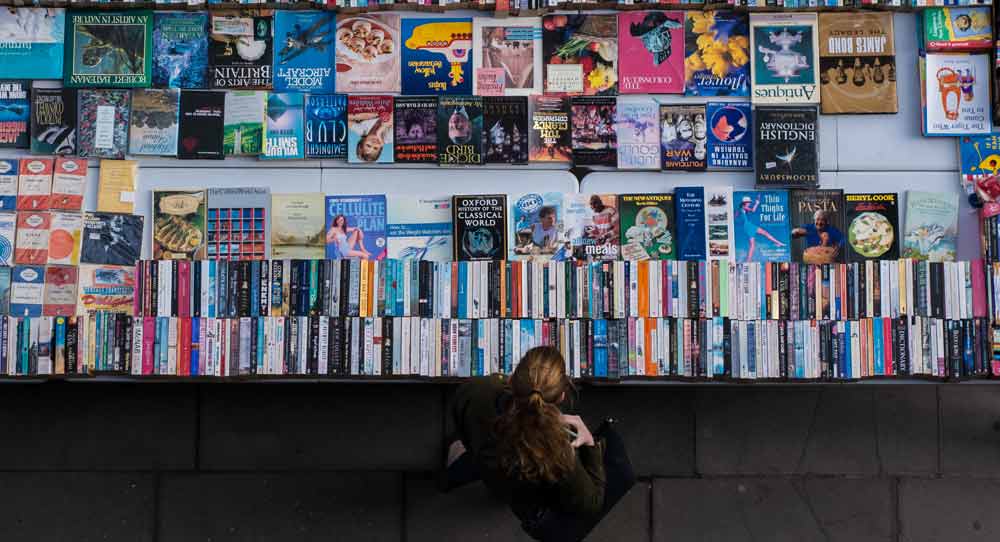Lionel BarberEditor of the Financial Times
Foreign Policy
The Fate of the West: The Battle to Save the World’s Most Successful Political Idea, by Bill Emmott. An excellent diagnosis and prescription from the ex-editor of the Economist on what has gone wrong with Western democracies. Written before French President Emmanuel Macron’s triumph, but still prescient and relevant.
Fiction
Cutting for Stone, by Abraham Verghese. A wonderful uplifting story about twins, rivalry, and conflict in Africa (Ethiopia). I defy anyone to escape without tears.
Home Country (United Kingdom)
The Spanish Civil War, by Hugh Thomas. The great history polymath died this year, but his definitive book on the origins and course of the Spanish Civil War lives on.
Movie, TV Series, or Documentary
Hostages, the Israeli-made TV series, is tension in motion. A brilliant devious plot involving rogue Mossad agents, a dodgy prime minister, and a courageous female surgeon. Say no more.
William J. BurnsPresident of the Carnegie Endowment for International Peace
Foreign Policy
Kissinger: The Idealist, 1923–1968, by Niall Ferguson. A fascinating first volume of the biography of one of the most consequential figures in the history of American foreign policy.
Fiction
The Russia House, by John le Carré. Reread recently. Written at the end of the Cold War, but still captivating.
Home Country (United States)
Hue 1968: A Turning Point of the American War in Vietnam, by Mark Bowden. Powerfully told, and a vivid depiction of individual courage and national hubris.
Movie, TV Series, or Documentary
Veep. A parody eclipsed by reality.
Judy DempseyNonresident senior fellow at Carnegie Europe and editor in chief of Strategic Europe
Foreign Policy
Strangers at Our Door, by Zygmunt Bauman. In this short and powerful book, Bauman analyzes how and why many European leaders have demonized refugees and migrants fleeing wars and famines. Leaders want to keep migrants away or separate from society, as if they will upset Europeans’ sense of well-being and comfort zone. For Bauman, it is a crisis of humanity that cannot be sustained.
Fiction
The Noise of Time, by Julian Barnes. Barnes delves into the moral dilemmas faced by Dmitri Shostakovich in particular and the role of artists living under totalitarianism in general. A coward, a realist, or naive in thinking it might give him more freedom, Shostakovich often toed the artistic line dictated by Stalin and other Communist leaders until his death in 1975.
Home Country (Ireland)
I opted instead for one from Hungary: László Krasznahorkai’s Satantango. This is a fascinating novel. First published in Budapest in 1985, it’s about the pull of one person who returns to a poor, dilapidated village and the power he has over simple (and always drunk) people who have been left behind and long for a savior. There’s a strange timelessness but also a relevance to this very special piece of writing.
Movie, TV Series, or Documentary
I don’t have any. But maybe the book A Crack in Creation: Gene Editing and the Unthinkable Power to Control Evolution could double up as a documentary. I met one of the authors, Jennifer A. Doudna, (the other is Samuel H. Sternberg) and was awed but also frightened by the impact of gene editing, or CRISPR. Doudna explained how manipulating DNA can bring huge benefits when it comes to combating malaria and HIV/AIDS and increasing crop yields. As for the political and ethical ramifications, they are just frightening.
Radosław SikorskiSenior fellow at Harvard University and distinguished statesman at the Center for Strategic and International Studies
Foreign Policy
My current favorite on foreign policy is Ivan Krastev’s After Europe, which provokes one to think how the EU might not survive the refugee crisis.
Fiction
Recent fiction I loved was the Cicero trilogy by Robert Harris, which brilliantly captures the unchanging rhythm of politics and the fragility of nondictatorship.
Home Country (Poland)
Sadly, because of current developments, I have had to return to a book by Aleksander Bocheński published in 1947 called The History of (Political) Folly in Poland.
Movie, TV Series, or Documentary
My wife and I are gripped by the U.S. TV series The Americans, which portrays a couple of Soviet illegals in 1980s Washington pretending to be an American family.






